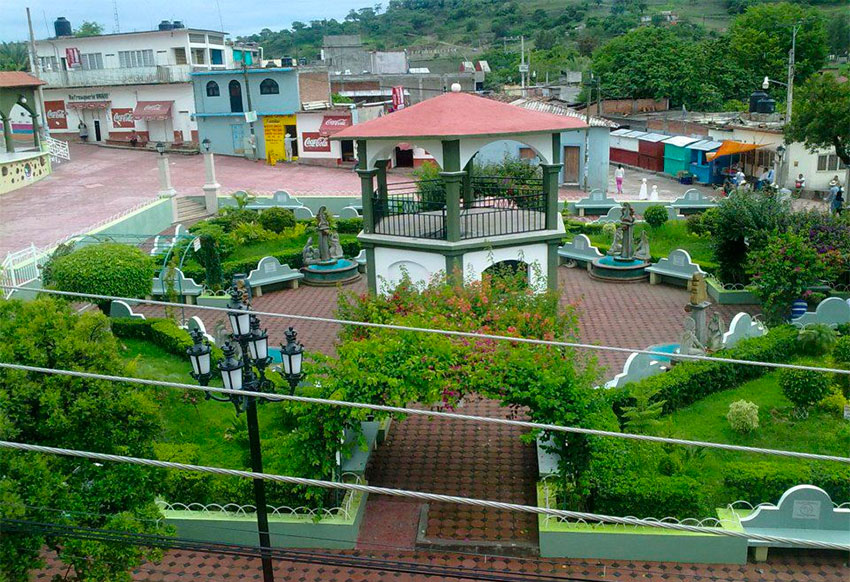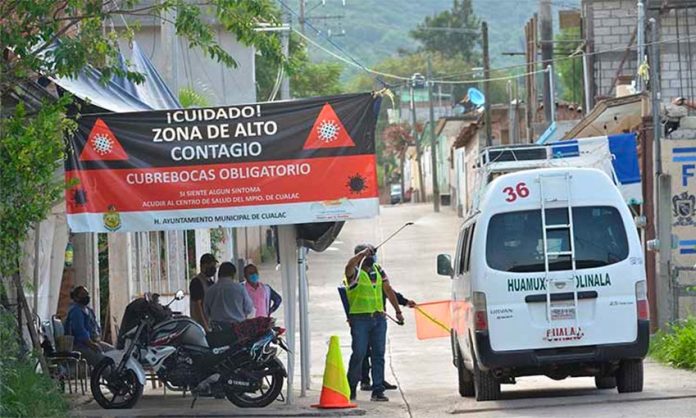Coronavirus restrictions were eased in Guerrero three weeks ago but one municipality in the state is still refusing to let outsiders in.
And the strategy is working: Cualác is one of just three municipalities in the southern state that hasn’t recorded a single case of Covid-19.
When the Guerrero government gave the green light for the resumption of several economic and recreational activities on July 2, authorities and residents in Cualác, located in the state’s Montaña region, decided that their best option was to continue with the same coronavirus prevention plan already in place.
As they have done since March, they continue to deny entry to outsiders even if they are delivering (debatable) essentials such as beer and Coca-Cola.
Suppliers of those products, and other more bona fide essentials, are only allowed as far as a checkpoint located at the entry to the municipality, where residents and shopkeepers are permitted to buy directly from the trucks.
All other outsiders are also prohibited from entering Cualác whatever the reason for their visit may be, while the vehicles of returning residents are thoroughly sanitized by the checkpoint volunteers.
“To avoid infections, we’ve asked people who are from here but live elsewhere, and those who have family here, not to come,” René García Arburto, a doctor and checkpoint volunteer, told the newspaper El Universal.
Municipal employees, police, self-defense force members and ordinary residents have all worked at the checkpoint, which has operated night and day since March.
The prohibition on the entry of outsiders has allowed Cualác to maintain its virus-free status during the five months since Covid-19 was first detected in Mexico.
There are only two other municipalities in Guerrero that haven’t recorded a single confirmed coronavirus case – San Miguel Totolapan in the Tierra Caliente region and Iliatenco, which like Cualác is in the Montaña region.
The state’s other 78 municipalities have recorded just under 10,000 confirmed cases, and 1,314 Covid-19 deaths, between them.

García told El Universal that local residents believe that Guerrero authorities decided to ease restrictions in the state for economic reasons even though the health risk hasn’t gone away.
“If we open the municipality, people will start to come and they could arrive infected [with the coronavirus],” he said.
Strict mitigation measures have also been implemented within the municipality, García said, explaining that local authorities decided to suspend all festivals and celebrations and made the use of face masks mandatory. People who flout the rules face fines or other sanctions, he said.
García said that residents of Cuatlaco and Chiaucingo went ahead with traditional celebrations in their towns and as a result were forced to go into quarantine and barred from entering the municipal seat.
In the name of stopping a virus that apparently hasn’t even arrived, burials in Cualác are being completed as swiftly as possible – even though the deceased didn’t die of Covid-19 – and vigils for the dead are not currently allowed.
García conceded that the coronavirus restrictions are not to all residents’ liking but was unapologetic, asserting that they are the only way to keep people safe.
If the coronavirus were to sneak into Cualác, the consequences could be devastating as half the population lives in extreme poverty, some 60% live in crowded conditions conducive to the virus’ spread and one-third of homes don’t have running water.
In addition, the municipality doesn’t have a hospital, meaning that anyone with serious coronavirus symptoms would have to be taken some 50 kilometers to Tlapa, where the Covid ward has room for just 12 patients.
With the odds of being unscathed by the coronavirus stacked against them should it arrive, authorities and many residents are doing all they can to stop it arriving there in the first place.
Source: El Universal (sp)
